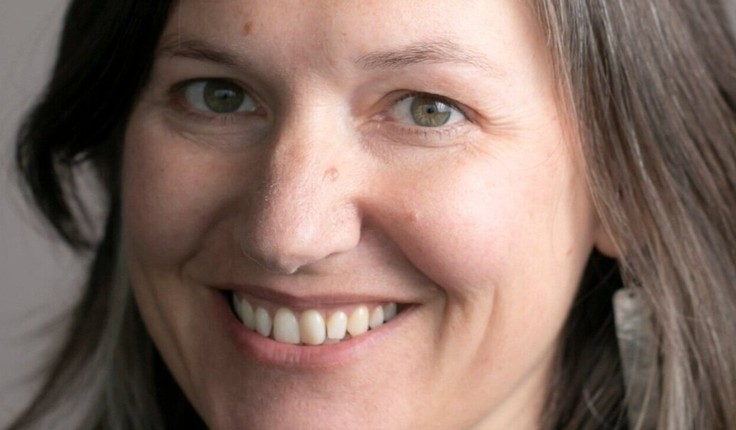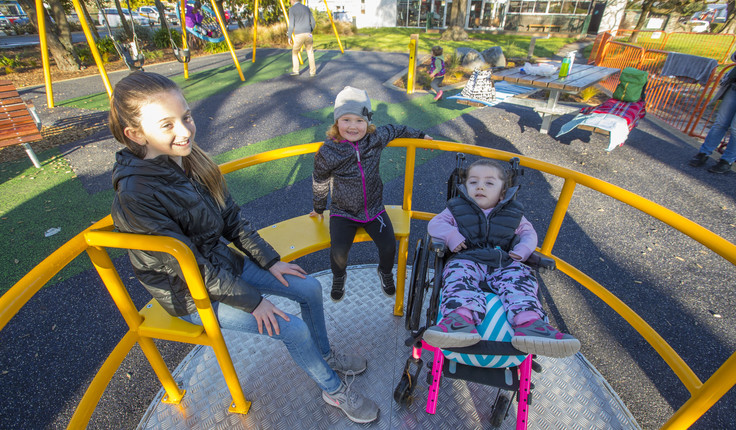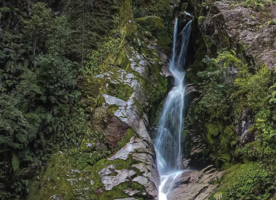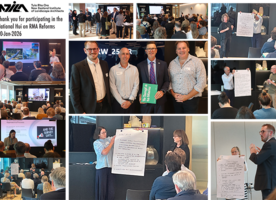News
From Bean Counter to Urban Designer
Posted 08 03 2021
in News

People, Gender Sensitive Design
Nicki Williams is a landscape architect within the Christchurch City Council. She gained her Masters in Landscape Architecture at Lincoln University in 2015. She’s also a member of the Urban Design Forum and Women in Urbanism, and served as secretary for the Christchurch NZILA branch committee for three years. Prior to completing her MLA she worked for 15 years as a Chartered Accountant reaching the level of Financial Controller for an International company. And because she’s not busy enough she’s also a trustee for the newly formed Gather Foundation Trust which is focused on co-designing and delivering play spaces for and with schools in lower socio-economic areas.
Nicki is one of the speakers at the NZILA Firth Conference in Tauranga in May. Her presentation is on gender sensitive design, which you can read more about on LAA here:
LAA: Why did you switch from accounting to landscape architecture?
NW: To be honest, I’d never heard of landscape architecture before I started investigating a career change! But once I looked into it, I realised it ticked all of the boxes for me in terms of design, my environmental interests, and the intellectual side of the profession. I’ve always enjoyed art and design and spent a lot of time in Punakaiki and Abel Tasman as a child which developed my love of the landscape.
LAA: What do you bring to the profession?
NW: I enjoy learning new things and understanding different perspectives; I think this helps in a design profession where we’re creating environments for a range of groups. My finance and commercial background help with the compliance side of my job and with putting together estimates and contract documents. Something that I really love is that there’s always new research and exemplars coming out which means there’s always room to improve and try new things.
LAA: You work within Christchurch Council - how important is it for bodies like councils to have in-house landscape architects?

NW: I think it’s very important for several reasons. You can’t help but get a unique perspective of the city and your role within it when you work at the Council because our clients are effectively all the residents of Christchurch. Because of that, I think we approach projects from a different perspective. We also work very closely with other Council teams; being in-house means that all these disciplines can integrate and collaborate in a way that is difficult to achieve when working externally. We learn from these other disciplines and they learn from us meaning that other teams start to apply more of a landscape lens to their work over time.
LAA: One of your hats is as a trustee of the newly formed Gather Foundation. What’s that?
NW: The Trust was started last year by Wendy Hoddinott from Gather Landscape Architecture, following the success of a holiday programme that she and her partner Jonny Hall from Variant ran, called Place Cadets. The Trust is focused on empowering children, young people and their wider communities in co-designing their outdoor environments. It’s about the kids being joint-partners in the whole process so that they can learn new skills while creating the places they want with the support of their communities behind them. So far our main tasks have been setting the Foundation’s vision and strategy and getting the support structures in place, but I think this is going to be an exciting year for the Trust as we start to get some projects underway.
LAA: You're also involved in the Urban Design Forum and Women in Urbanism, as well as undertaking research around Gender Sensitive Design. You're incredibly busy - what motivates you to get so involved?
NW: We’re really lucky to have groups in NZ like the UDF and WiU as well as the NZILA committees who run excellent events, seminars and opportunities to learn from each other. I’m increasingly aware of the need to design cities that are inclusive to everyone and that motivates me to keep improving my skills and knowledge in those areas. I’m also just starting a level 5 Te Reo course (after completing levels 1-4) which is giving me a better understanding of Māori culture and how I can be a better ally to tangata whenua.
LAA: What will your key message at the conference be?
NW: My presentation at the conference is about applying a gender lens to our design projects. We are already familiar with the idea of applying a cultural lens or an accessibility lens to a design, but we’re less aware of the challenges faced by different genders. My presentation will look at why a gender lens is needed; some gender data for Christchurch and NZ residents; and will look at some examples of how we might go about addressing this. It’s a subject that I’m getting increasingly passionate about; I now have a whole bookshelf at home overflowing with books on this subject! In fact, a few good books that I’ve read recently on the subjects of both gender and equality are:
- The Inequality Debate: An Introduction, Max Rashbrooke (BWB books)
- Imagining Decolonisation, (BWB books)
- Feminist City: Claiming Space in a Man-Made World, Leslie Kern
- Invisible Women: Exposing Data Bias in a World Designed for Men, Caroline Criado-Perez
Share
12 Feb
NZILA lodges submission on Planning Bill and Natural Environment Bill

There’s still time to have your say
Tuia Pito Ora New Zealand Institute of Landscape Architects has lodged its formal submission on the Planning Bill and Natural …
09 Feb
Weekly international landscape, climate and urban design update

Monday 9 February
This is your weekly international snapshot of what’s happening across landscape architecture, climate adaptation and urban design. Drawing on credible …
02 Feb
RMA Reform submission update

Call for feedback and images
Submission framework The Environmental Legislation Working Group thanks all members who made the effort to join us at the national …
Events calendar
Full 2026 calendar